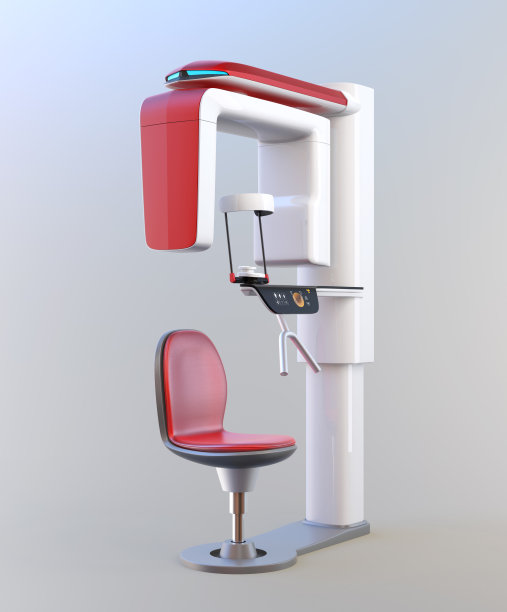Summary: Dental fillings are a common procedure that helps restore teeth damaged by decay. However, there are important precautions to consider both before and after the treatment to ensure optimal oral health. This article outlines four critical aspects: preparations for your appointment, post-treatment care, dietary considerations, and communication with your dentist. By adhering to these guidelines, you can enhance the effectiveness of the treatment and maintain your overall dental health.
1. Preparations for Your Appointment

Before undergoing a dental filling treatment, it’s essential to prepare adequately. Scheduling an appointment with your dentist allows you to discuss any concerns and understand the procedure. Make sure to inform your dentist about any allergies or medical conditions you have, as this information can impact the treatment plan.
Additionally, consider arranging for transportation if you’ll be receiving sedation. Some filling materials may require anesthesia, making it unsafe to drive afterward. By planning this in advance, you can ensure a smoother experience on the day of your appointment.
Lastly, maintaining good oral hygiene before the treatment helps in minimizing bacteria in the mouth. Brush and floss your teeth thoroughly to reduce the risk of post-treatment complications and promote optimal healing.
2. Post-Treatment Care Instructions
After receiving a dental filling, following post-treatment care instructions is crucial for a successful recovery. Your dentist will likely recommend avoiding chewing on the side of the filling for at least 24 hours. This stance is essential to allow the filling material to set properly and avoid dislodging it.
It’s also recommended to monitor any discomfort or sensitivity you may experience after the procedure. Use over-the-counter pain medication if necessary, but consult your dentist if the pain persists longer than expected.
Maintaining regular follow-up appointments with your dentist ensures that the filling is functioning correctly and that your overall dental health is intact. These appointments allow for monitoring of the filling and assessment of surrounding tooth structures.
3. Dietary Considerations After Treatment
Your diet plays a significant role in the health of your dental fillings and overall oral health after treatment. For the initial 24 hours, it’s best to stick to soft foods and liquids to avoid putting undue pressure on the filling. This approach minimizes the risk of damaging the new filling while it is still setting.
Also, avoid hot or extremely cold foods, as your teeth may be sensitive after the procedure. Ensure that you give your mouth time to recover before introducing hard, crunchy, or sticky foods that can disrupt the fillings integrity.
Hydration is key; therefore, drink plenty of water to facilitate healing and maintain good oral hygiene. Furthermore, incorporating calcium-rich foods can help strengthen your teeth post-treatment, contributing to long-term oral health.
4. Importance of Communication with Your Dentist
Effective communication with your dentist before and after the filling treatment is vital. Raise any concerns you may have regarding dental anxiety, potential side effects, or desired outcomes. This conversation helps your dentist tailor the treatment to your specific needs, ensuring a more comfortable experience.
After the treatment, don’t hesitate to reach out to your dentist if you experience any unusual symptoms or if you feel the filling requires adjustment. Your dentist can provide guidance and, if necessary, schedule an appointment to address your concerns promptly.
Building a good rapport with your dental healthcare provider fosters an environment of trust and can lead to better treatment outcomes and satisfaction with your dental care journey.
Summary:
In conclusion, receiving a dental filling involves necessary preparations, attentive post-treatment care, mindful dietary choices, and ongoing communication with your dentist. By taking these precautions, you can ensure that your dental filling remains effective and contributes positively to your overall oral health.
This article is compiled by Vickong Dental and the content is for reference only.
Vickong Dental
Vickong Dental is a large medical group established in Hong Kong in 2008 by professors from well-known medical universities in Guangdong and Hong Kong, as well as medical doctors from key national '985' universities (including Master's supervisors and senior professors). The chain of branches brings together expert dentists with PhDs and Master's degrees from Hong Kong and Mainland China, committed to providing high-quality dental treatment.
"Vickong Dental Practices the University Motto of 'Healing and Serving Society,' with a Stable Operation for Sixteen Years. It Has Been honored with Hong Kong Enterprise Leaders's Choice,' and is a Global Trusted Implant Center for the Nobel Implant System. Recommended by Hong Kong Metro Broadcast and Guangdong Television, it Serves Customers from Over Thirty Countries and Regions, Gaining the Trust and Favor of Citizens from the Guangdong-Hong Kong-Macau Greater Bay Area and Surrounding Cities.

Thousands of customers' unanimous praise
The most recognized and highly recommended dental service by customers in the Guangdong-Hong Kong-Macau Greater Bay Area
We Ensure You Receive Detailed Care and Attention Here
Hong Kong standards, Shenzhen prices, Your Trusted English-speaking dentists

Vickong Dental Medical-Grade Instrument Disinfection Process
Vickong Dental Medical-Grade Instrument Disinfection Process

Vickong Dental Chain: A Warm and Comfortable Environment for Treatment






Appointment Hours

Q&A
Why choose Vickong Dental?
Vickong Dental practices the university motto 「Medicine to Benefit Society」, with each branch bringing together highly qualified dentists with doctoral and master’s degrees from Hong Kong and the Mainland, and has maintained seventeen years of steady operation。Recipient of 「2024 Hong Kong Enterprise Leaders Brand」, 「2025 Hong Kong Enterprise Leaders Brand」, a Nobel Biocare Global Trusted Implant Center, and a brand recommended by Metro Radio Hong Kong and Guangdong TV。
To date, we have served customers from more than thirty countries and regions,earning exceptionally high word-of-mouth recognition and trusted recommendations from residents across the Guangdong-Hong Kong-Macao Greater Bay Area and surrounding cities
We have eight major branches in Zhuhai、Shenzhen,and a consultation and service assurance center in Hong Kong,so you can book a free consultation at any time for any questions,which is very reassuring.
If I do not accept the quotation after the CT scan, will I be charged??
No! As long as the actual treatment has not started, you will not be charged any fees.
Will there be any additional charges during the treatment process?
No, there won’t be any additional charges. Before treatment begins, we will clearly explain the treatment plan and its corresponding fees. Only after the patient agrees and signs the consent form will we proceed with the dental service.
Can I pay in Hong Kong dollars?
Yes. Vickong Dental accepts payment in Hong Kong dollars. The amount will be converted based on the exchange rate of the day, and the applicable rate will be clearly communicated to you in advance.
Can I reschedule my appointment at any time?
Yes. Please contact us via **WeChat** or **WhatsApp** as early as possible, providing your original appointment time and details, along with your preferred new date and time slot for rescheduling.













